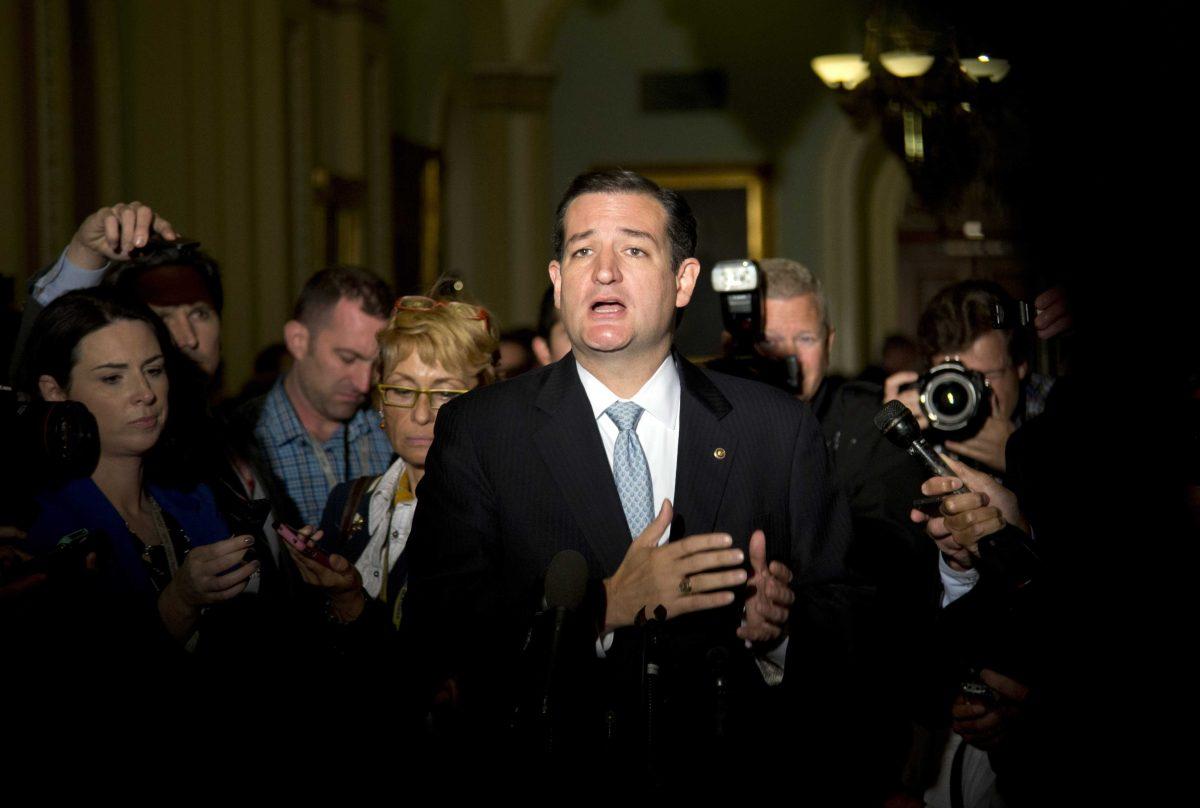However the debt ceiling showdown ends, Republicans need to have a true “Come to Jesus” meeting.
Indeed, the contentious political battles of late, involving both the partial shutdown of government as well as raising the debt ceiling, have been self-inflicted Republican struggles between its traditionalist and radical factions.
It’s important to realize the distinction. This isn’t “partisan gridlock,” a popular term used in the media to characterize disagreement between the political left and right.
It’s the struggle within one party, with its political temper tantrums potentially inflicting economic harm on a global scale.
As the Republican Party’s approval rating plummeted to the lowest point in Gallup history this week, with just 28 percent of Americans having a favorable impression of the GOP, solving their identity crisis should be of utmost necessity.
Quite simply, this involves dissolving the Tea Party Movement.
During midterm elections in 2011, hardline Tea Party Republican candidates took over the House of Representatives. They changed the landscape of American politics by transforming the GOP from a pragmatic party that governs into the fanatical party of protest.
More specifically, the party has let itself become captive to conflicting ideological bases: pro-life advocates, anti-immigration activists, proponents of the biblical take on marriage, libertarians who want to shrink government and anti-tax advocates.
Seriously? How can Republicans possibly think they can address the great challenges America faces today with that incoherent and contradictory slew of hardline positions?
No wonder the GOP fails to unite behind literally any plan pushed by its leaders in the House or Senate.
Would it be too much to ask for a Republican Party that offers constructive conservative proposals on the major issues and is ready and willing for strategic compromise to best advance and represent its interests and those of the U.S.?
Apparently so.
Take, for example, the debt ceiling issue.
Hundreds of impartial economic and financial experts, ranging from the Secretary of the Treasury to the head of the International Monetary Fund to the CEO of Goldman Sachs, have issued warnings, saying that a failure to raise the debt ceiling would have cataclysmic effects on the global economy.
But some members of the GOP, particularly those in the Tea Party, it turns out, do not accept the legitimacy of scholars.
In fact, despite the dire warnings of experts, Republicans have grown increasingly skeptical of the notion that failing to raise the debt ceiling would result in catastrophic default.
Rep. Ted Yoho, R-Fla., even told the Washington Post that reaching the debt limit could help the economy by showing the world that the U.S. is serious about its debt problem. “I think, personally, it would bring stability to the world markets,” he said.
I think, personally, that Yoho has likely never taken an economics course. Good thing people like him are so influential in terms of policy in areas they know absolutely nothing about.
Equally important, Republicans need a remedial lesson in the art of negotiation.
They have demonstrated a failure to accept the logic of compromise, taking our nation’s credit to the brink of collapse in order to extract the maximum amount of concessions from President Barack Obama.
If you hadn’t taken notice yet, the debt ceiling and government shutdown debates have highlighted the Tea Party’s lack of interest in governing. And they’re exactly what’s holding the modern GOP back.
Until the Republican Party returns to pushing conservative issues, not radical ones, we’ll be caught in the same unproductive, “kick the can” cycle we’ve been in since the turn of the decade.
Jay Meyers is a 20-year-old economics junior from Shreveport.
Opinion: Debt ceiling, shutdown highlight Tea Party flaws
By Jay Meyers
October 16, 2013
Sen. Ted Cruz, R-Texas, gestures as he talks with reporters on Capitol Hill, Wednesday, Oct. 16, 2013, in Washington. Leaders reached a last-minute agreement to avert a threatened Treasury default and reopen the government after a partial, 16-day shutdown. Cruz said he would not try to block the agreement. (AP Photo/Carolyn Kaster)





